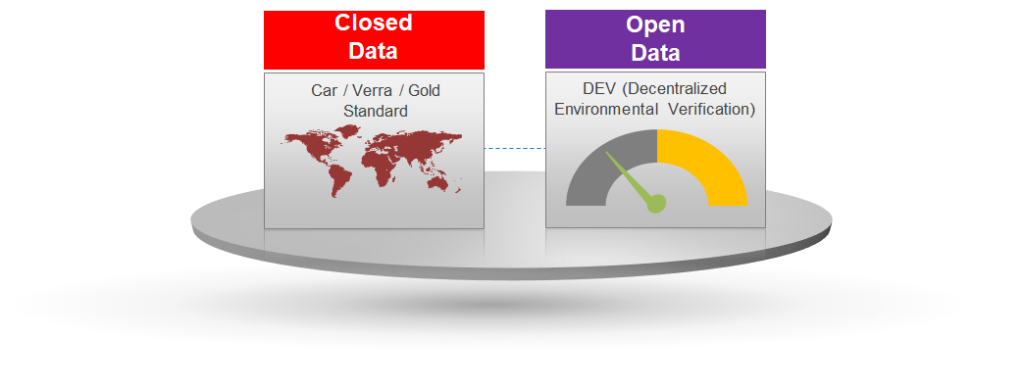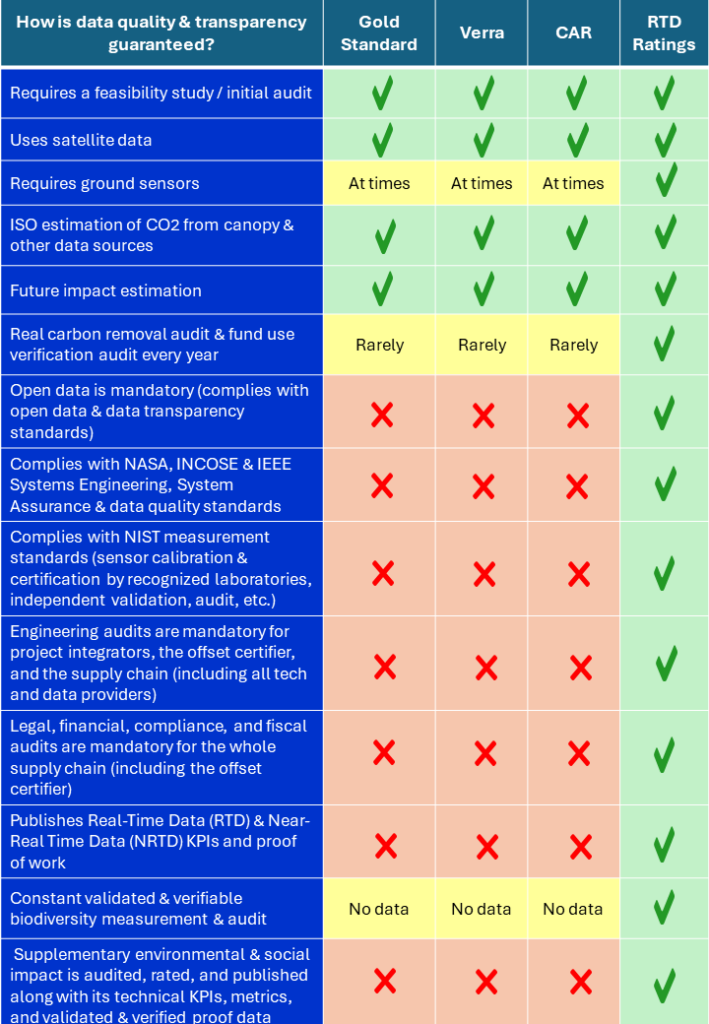Methodologies
The problem is that carbon markets have operated for many years only on closed-data carbon credits. Closed Data means that it doesn’t show the full information related to exactly when, where, and how those tons of carbon were captured. Until now we have had to rely on the certifier, as we never get to see the support data. When false claims are discovered, customers (the companies that buy the offsets) face reputational and regulatory risks.
The current trend is to use or migrate to Carbon Credits based on Open Data Methodologies, that is, based on real data that is available to all interested parties. In this way, we work in a more transparent market without the risk of potential fraud. Long reports of only words are replaced by reports with real and verifiable open data. What kind of data? Satellite imagery, sensor readings, cameras, microphones, and drone data.

“When the river sounds, it’s because it brings stones”
Methodologies Differences
“The analysis developed by Openhill – Weston Insights shows the huge differencies between
the three more known Close Data Certification Companies and Methodologies vs
the Open Data Certification Methodology from our Partner, RTD Ratings”






